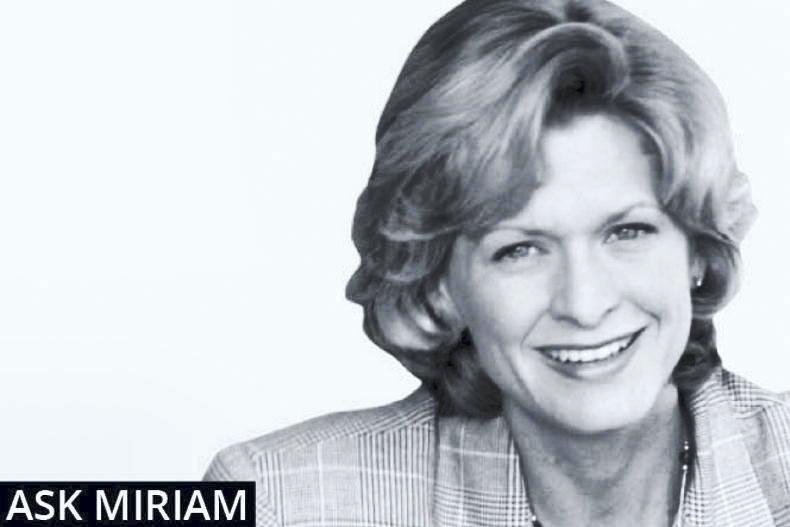All families are different. Some families work hard at communicating openly and honestly with other family members. Some families find it very difficult to discuss sensitive issues but still work at it and push themselves to have these important conversations.
Some families just avoid sensitive issues and don’t discuss issues, emotions, or opinions. In this situation, the reason they might be avoiding talking about a subject is learned from past experience. Raising the subject matter might have immediately started a family argument, maybe a shouting match or worse. Maybe a family member does not express their opinion because they don’t want to hurt another family member’s feelings. Some families will avoid argument and conflict at all costs but there is a cost involved in this type of conformity.
Seen as a weakness
Traditionally farm owners have been male. Expressing your feelings was seen as a weakness. Hiding your feelings was seen as being strong and masculine. It would be common to hear them say “I don’t want to talk about it” or if a subject was raised, they got angry and dismissed it, saying things like “this is not the time and place to be talking about what happens the farm after I die”.
Many men of a generation even found it hard to express their love and affection for their own children. By not investing the emotional time in getting to know their children, they didn’t discern their beliefs, opinions, and attitudes. Families need to be able to have conversations openly and honestly. They need to be able to trust each other. Good communication will bind the family together as a unit. Many potential conflicts can be avoided by better communication. Good communication is so fundamental to being both an effective family and an effective farm business. Good communication means that information and feelings are conveyed clearly and constructively and received and understood properly.
Unique communication styles
All families are unique. Some are loud and boisterous, where everyone fights to get a word in edgeways, while others are more reserved. Every family has its own way of communicating and that style is an integral part of building healthy relationships.
Communication takes patience and the ability to stand in the other person’s shoes and think about the other family member and why they have such a view, attitude, or opinion. Communication within families is often very direct. People learn to use a tone of voice and react in ways that are learned behaviour. Communication can be different between parents and can be different with children depending on their age. Allowing all families to express their feelings is essential and having a discussion as a family should not lead to stress and anxiety.
Sometimes the subject matter can be very emotional such as the concept of “fairness” with one, or more, family members feeling that they are not being treated fairly. To function properly as a member, you must understand why this family member feels unfairly treated. It could be that they don’t feel that the farm should go to the eldest son, just because this is tradition.
The right time
Pick the right time and place to have these types of discussions. Everyone is busy and often being too busy is the excuse not to have the key conversations. Avoid situations where alcohol is involved. Chose the right location. Signal to members that this conversation is important and family members need to respect the process and be respectful to different opinions. Some family members feel misunderstood. Some family members might not be seen as trustworthy.
Having these conversations is not easy. They can become very emotional. It can involve compromises. Some family members sit in on these family meetings and decide to say nothing. Some family members threaten to walk out if they don’t get their way. Suffice to say “chairing” these family meetings can be very difficult.
Getting help
Many families will benefit from an outsider sitting with them and helping them manage these conversations in order to keep some structure to the conversation. The outsider could be a trained family therapist or a trained mediator.
The mediator has to understand the family business issues as well as the family issues. You can’t separate the two universes. Obviously, my bias is to find someone that has worked with many families that are in business together because mixing family and business together is a very complex environment.
Remember it is not just “good to talk”, it is essential.
Paul Keogh is the author of The Family Business Book that gives practical tips to help families navigate their way through the complexity of being a family and also running a business together. The book draws on Paul Keogh’s expertise and decades of working with family businesses and family farms of all sizes.
Read more
Succession and inheritance: finding a ‘consigliere’
Are these legal fees excessive or reasonable?
All families are different. Some families work hard at communicating openly and honestly with other family members. Some families find it very difficult to discuss sensitive issues but still work at it and push themselves to have these important conversations.
Some families just avoid sensitive issues and don’t discuss issues, emotions, or opinions. In this situation, the reason they might be avoiding talking about a subject is learned from past experience. Raising the subject matter might have immediately started a family argument, maybe a shouting match or worse. Maybe a family member does not express their opinion because they don’t want to hurt another family member’s feelings. Some families will avoid argument and conflict at all costs but there is a cost involved in this type of conformity.
Seen as a weakness
Traditionally farm owners have been male. Expressing your feelings was seen as a weakness. Hiding your feelings was seen as being strong and masculine. It would be common to hear them say “I don’t want to talk about it” or if a subject was raised, they got angry and dismissed it, saying things like “this is not the time and place to be talking about what happens the farm after I die”.
Many men of a generation even found it hard to express their love and affection for their own children. By not investing the emotional time in getting to know their children, they didn’t discern their beliefs, opinions, and attitudes. Families need to be able to have conversations openly and honestly. They need to be able to trust each other. Good communication will bind the family together as a unit. Many potential conflicts can be avoided by better communication. Good communication is so fundamental to being both an effective family and an effective farm business. Good communication means that information and feelings are conveyed clearly and constructively and received and understood properly.
Unique communication styles
All families are unique. Some are loud and boisterous, where everyone fights to get a word in edgeways, while others are more reserved. Every family has its own way of communicating and that style is an integral part of building healthy relationships.
Communication takes patience and the ability to stand in the other person’s shoes and think about the other family member and why they have such a view, attitude, or opinion. Communication within families is often very direct. People learn to use a tone of voice and react in ways that are learned behaviour. Communication can be different between parents and can be different with children depending on their age. Allowing all families to express their feelings is essential and having a discussion as a family should not lead to stress and anxiety.
Sometimes the subject matter can be very emotional such as the concept of “fairness” with one, or more, family members feeling that they are not being treated fairly. To function properly as a member, you must understand why this family member feels unfairly treated. It could be that they don’t feel that the farm should go to the eldest son, just because this is tradition.
The right time
Pick the right time and place to have these types of discussions. Everyone is busy and often being too busy is the excuse not to have the key conversations. Avoid situations where alcohol is involved. Chose the right location. Signal to members that this conversation is important and family members need to respect the process and be respectful to different opinions. Some family members feel misunderstood. Some family members might not be seen as trustworthy.
Having these conversations is not easy. They can become very emotional. It can involve compromises. Some family members sit in on these family meetings and decide to say nothing. Some family members threaten to walk out if they don’t get their way. Suffice to say “chairing” these family meetings can be very difficult.
Getting help
Many families will benefit from an outsider sitting with them and helping them manage these conversations in order to keep some structure to the conversation. The outsider could be a trained family therapist or a trained mediator.
The mediator has to understand the family business issues as well as the family issues. You can’t separate the two universes. Obviously, my bias is to find someone that has worked with many families that are in business together because mixing family and business together is a very complex environment.
Remember it is not just “good to talk”, it is essential.
Paul Keogh is the author of The Family Business Book that gives practical tips to help families navigate their way through the complexity of being a family and also running a business together. The book draws on Paul Keogh’s expertise and decades of working with family businesses and family farms of all sizes.
Read more
Succession and inheritance: finding a ‘consigliere’
Are these legal fees excessive or reasonable?










SHARING OPTIONS